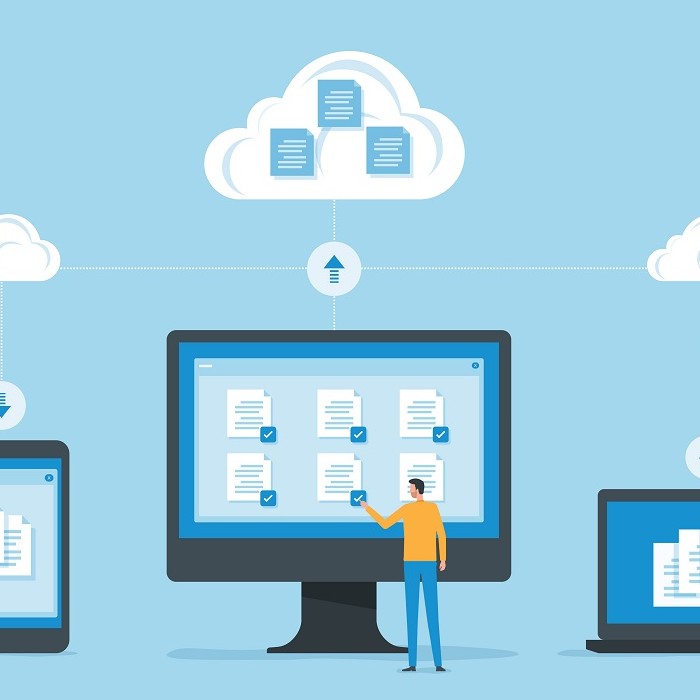Data floods into businesses, but trying to use it in an unstructured form is like trying to drink from a fire hose. What good is that rich stream of data if it can’t quench an organization’s thirst for useful information?It’s why metadata is so important, it helps manage the follow.
“There is a data explosion, and we have to make sure that it is contained in a way where we can optimize, manage and present it,” said Bala Kuchibhotla, former general manager of databases at Nutanix who co-founder and became CEO of Tessell in 2021.
“Random data is all over. Metadata helps creates a structure around data.”
While search engines can find data, they can’t gauge its relevance or usefulness. Metadata, on the other hand, defines the data’s form or structure, its quality, and what it means to the end user. A good metadata system focuses on what information matters most to the organization.
What is Meta Data?
Metadata is, simply, “data in context.” It answers the “who, what, why, where and how” questions about the data. For example, a digital image may include metadata that describes its size, resolution, content and when it was taken. A text document may contain information about the author, as well as how long the piece is and the point it makes.
Data needs to be captured with intelligence, and the key to doing that is metadata. Metadata is like tagging, marking or stamping data with a label to make it recognizable during a search or reporting function. It’s like color-coding a filing system or using a card catalog in a library, and it saves time and resources.
The ancient Greeks used the word “meta” to describe something that comes after or beyond. In casual context, it means having awareness from within or from a higher level. It’s like thinking about thinking or reading a book about reading a book. Add “meta” to “data” and it’s data about data. Because of its importance, the metadata of today will become meta-metadata of tomorrow or the metadata about metadata.
Types of Metadata
Metadata can be categorized into three main types: descriptive, structural, and administrative. These uses cases show how metadata is often used and why metadata is important in activating your data.
- Descriptive empowers discovery and identification. It can include identifying information including title, author, abstract, subject headings and keywords.
- Structural shows how information is put together and is typically used in machine processing. It often describes relationships between pieces of a resource, such as chapters in a novel.
- Administrative facilitates better resource management. It often shows how and when a piece of information was made. It can include descriptions of preservation, rights, and by showing such information as when and how the resource was created. Two types of administrative metadata are those that deal with intellectual property rights and preservation metadata, used to archive and preserve a resource.
Why Metadata is Important
In a 2021 study by Cognopia, researchers found that 32% of responders have a data strategy and only 2 % report wide usage of metadata management tools.
That’s a big problem.
“With metadata you can do more,” says Kuchibhotla. “You can analyze the data. You can look into more interesting use cases. Using metadata is a very key component in every aspect of major applications. It’s how you consume data.”
Today, we’re living in a rising ocean of data, said Anjana Susarla, associate professor of accounting and information systems at Michigan State University’s Broad College of Business.
“Each of us is leaving a digital trace captured on multiple sources,” she said. “We generate 2.5 quintillion bytes of data every day, and that number will increase with the Internet of Things. It’s hard to grasp how big the numbers will be. Gathering data isn’t enough. It has to be organized well to be useful.”
Susarla likens the world of big data to “The Library of Babel,” a short story written in 1941 by Argentine author Jorge Luis Borges. The piece is about a library whose books contain every possible combination of letters and numbers. However, the order and content of the books are completely meaningless.
“We are living in that world today,” said Susarla. “If you think about all of the connected devices and websites; we’re stuck in an infinite loop of data.”
Smart companies must understand the nuances of digital cataloguing in order to leverage metadata, said Susarla, “and that’s the challenge. You need an infrastructure in place where the data that people are making is stored in a way that makes it valuable.”
Companies that do it well include Netflix, Uber and Amazon, Susarla said. Each is “a data-driven operation based on metadata. These companies are data hungry.” For example, Netflix uses data to decide which of its own projects to fund, and Uber uses data to recommend locations to drivers who want the best fares.
Metadata Reduces Waste
In addition to making data useful, metadata helps reduce storage space, which can cut costs. Unstructured data can include meaningless fields or configurations, requiring maintenance, patching and updates. This can be wasteful if you’re paying for space that you don’t need.
Volume also hinders use. For example, banks collect terabytes of data. Because of the space problem, they're just not able to think about all of the use cases they want to do with it, said Kuchibhotla. Instead, metadata can create snapshots, reducing the terabytes from 110 to five.
“You can enjoy the same functionality and get space pressure relief,” said Kuchibhotla.
Due to data’s growing complexity, metadata organizes it and increases the relevance of datasets to bring more value to companies. Metadata protects the future accessibility of digital information by safeguarding its lineage. And it assists in the number of use cases that can be created.
“We have managed hundreds of databases,” said Kuchibhotla. “We manage metadata of these databases, what they're made of, who created it, what the access is and so on and so forth. It's all about metadata. It’s a key component in every aspect of major applications. If you're good at metadata, you can do wonders.”
This is an update to the original article published on September 14, 2022.
Editor’s note: Learn about Nutanix Database Services, which provides database-as-a-service (DBaaS) across on-premises and public clouds
Stephanie Vozza is a contributing writer who specializes in business and productivity. She is a columnist for FastCompany.com [fastcompany.com], and her byline has appeared in Inc., Entrepreneur and Success magazines. Find her on Twitter @StephanieVozza.
© 2023 Nutanix, Inc. All rights reserved. For additional legal information, please go here.




